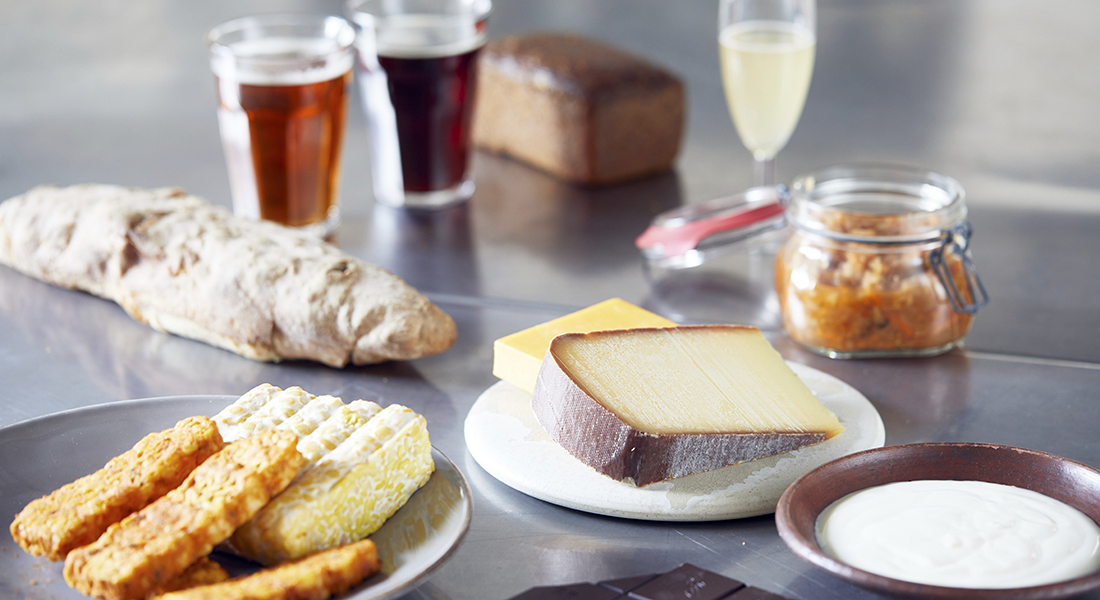Microbial biodiversity and food biotechnology
Microbial activity is the main reason for spoilage of foods but, at the same time, the use of microorganisms is also one of the oldest methods for preserving foods. Both aspects therefore play a central role in sustainable production.

We can use microorganisms to transform different raw materials, incl. various plant fractions, into attractive fermented products and harness the power of microorganisms to create new desirable characteristics in terms of flavour, structure, sensory attributes, nutritional properties and shelf life. We can also apply our detailed knowledge of the specific microorganisms to counteract unwanted microbial activity and ensure the shelf life and safety of foods thereby avoiding unnecessary food waste.
The vision is to optimize the use of raw materials and reduce food waste in food production by in-depth understanding of the interaction between microbes, the food material, and the technologies applied in food production. The research covers both basic and applied studies from mechanistic molecular understanding to the operational food production level and there is a wide collaboration with national and international partners within academia and industry.
We have advanced platforms for different scale fermentations and sequencing as well as up-to-date laboratories incl. facilities for microscopic techniques, anaerobic work, handling of pathogens and cell cultures etc.
Fermentation for upgrading of plant material
- Proferment
- Fermpro
- Natural vitamin B12 fortification of future foods
Prevention of microbial spoilage/reduction of food waste
- Improve Dairy Life
- DNAPROKON
Reduction of methane gasses
- NoMethane
- ClimateCow



